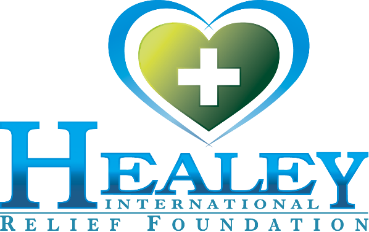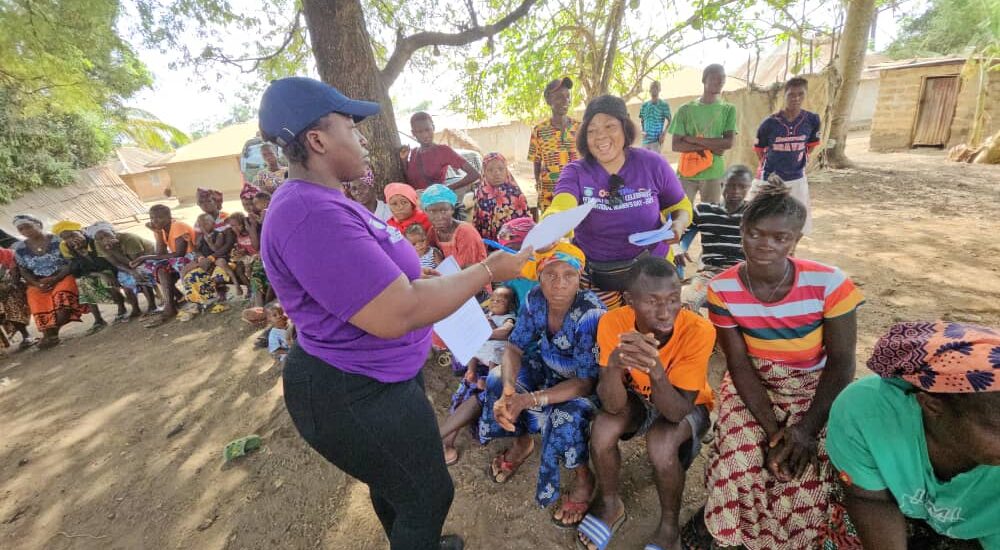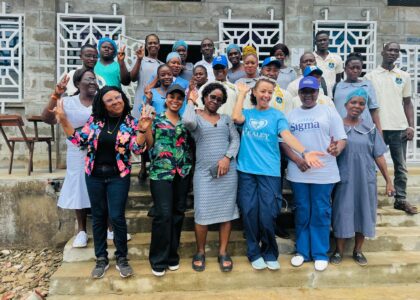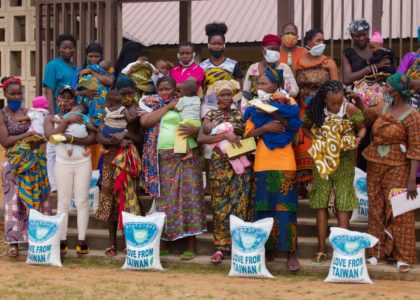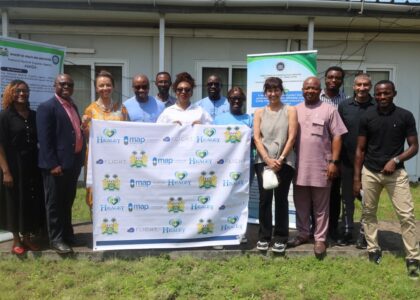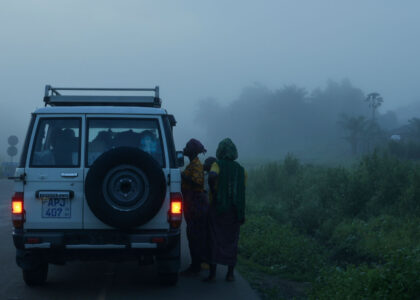From the very beginning, women have been at the heart of HIRF’s mission in Sierra Leone. One of our earliest initiatives was the Fatima House of Light. Located in the Kline Town area of Freetown, this vocational training project offered support to women impacted by the civil war. They studied and became hairdressers, tailors, administrative staff, and automobile mechanics. Since then, HIRF has continued to champion women’s advancement through programs that support female farmers and promote women’s health.
Strengthening Women-Led Organizations
Currently, HIRF is part of a transformative initiative funded by UK-based Comic Relief, focused on strengthening the capacity of three women-led organizations in Sierra Leone. Uman Tok, Every Woman Sierra Leone, and Berny’s Hope are powerful agents of change mobilizing communities, advocating for women’s advancement, and shaping local solutions to local challenges.
HIRF is proud to support this effort by helping build the organizations’ capacity across critical areas, including financial management, business development, compliance, monitoring and evaluation, safeguarding, advocacy, and more. These skills are essential for long-term sustainability and impact, ensuring that the work being done can grow, adapt, and serve communities effectively for years to come.
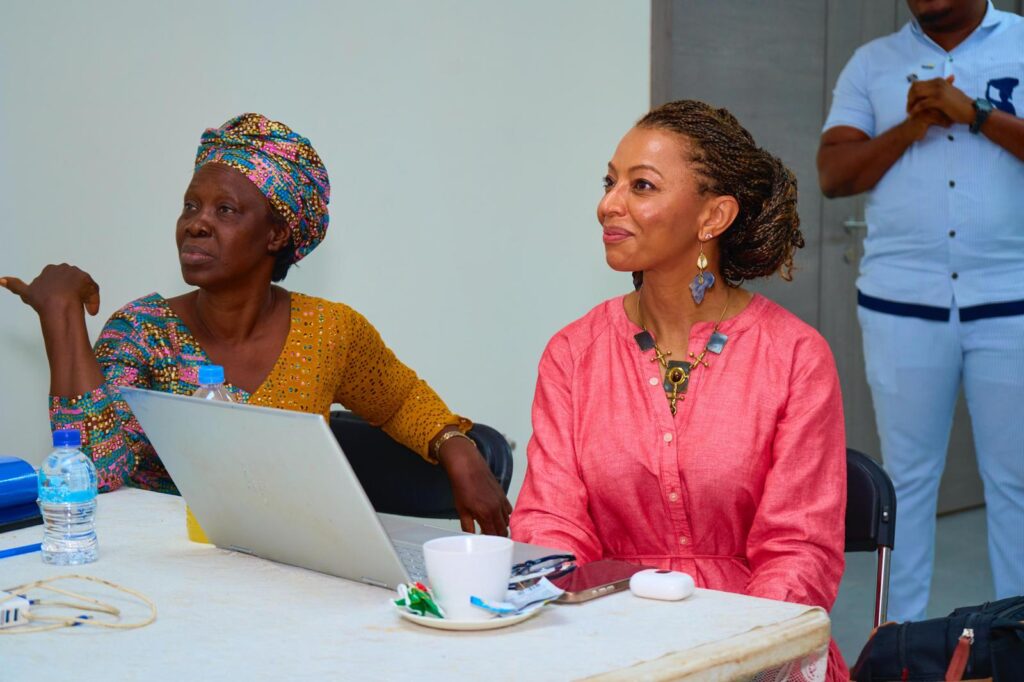
“To truly advance the status of women and address the systemic challenges they face—such as the persistent violence against women and girls—we must strengthen their role as leaders,” said HIRF Executive Director Josephine Garnem. “HIRF has always believed in the transformative power of women and has consistently championed initiatives that uplift, empower, and amplify their voices, build their leadership capacity, and open doors for them to shape the future of their communities.”
Community Centered Events
That’s why HIRF is proud to support initiatives led by Every Woman Sierra Leone (EWSL) that tackle the deeply rooted issue of female genital mutilation (FGM). In a country where over 62% of women aged 15–49 report experiencing physical or sexual violence—and more than 83% have undergone FGM—there is a need for bold, community-led solutions. EWSL is meeting this challenge head-on through a multi-pronged, grassroots approach that includes workshops, dialogue sessions, and direct engagement with Soweis—the traditional practitioners of FGM.
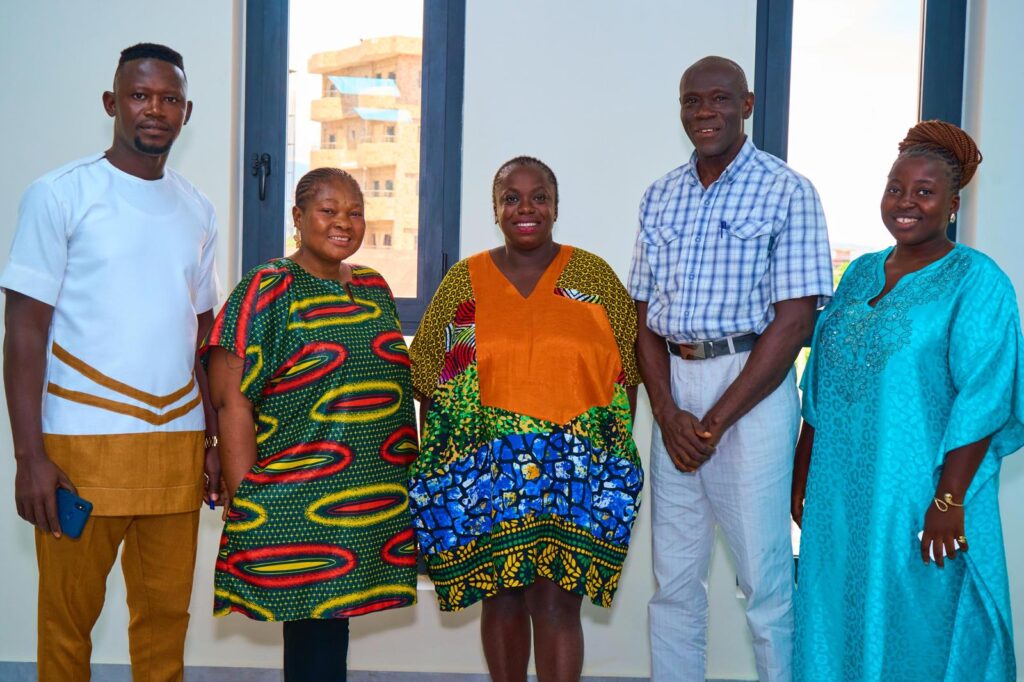
Earlier this year, on International Women’s Day, EWSL hosted and HIRF participated in powerful community gatherings in Makeni and the nearby village of Pate Bana. In Makeni, young women came together to share their experiences and discuss the challenges they face in realizing their rights and accessing healthcare.
The conversations were not only honest but also hopeful, as participants explored how they could shape a future rooted in equality and opportunity. Representing HIRF, Praise Mansaray reminded the group that while progress is being made, many barriers remain. She encouraged them to keep striving for “a world where every girl is safe, respected, and empowered.”
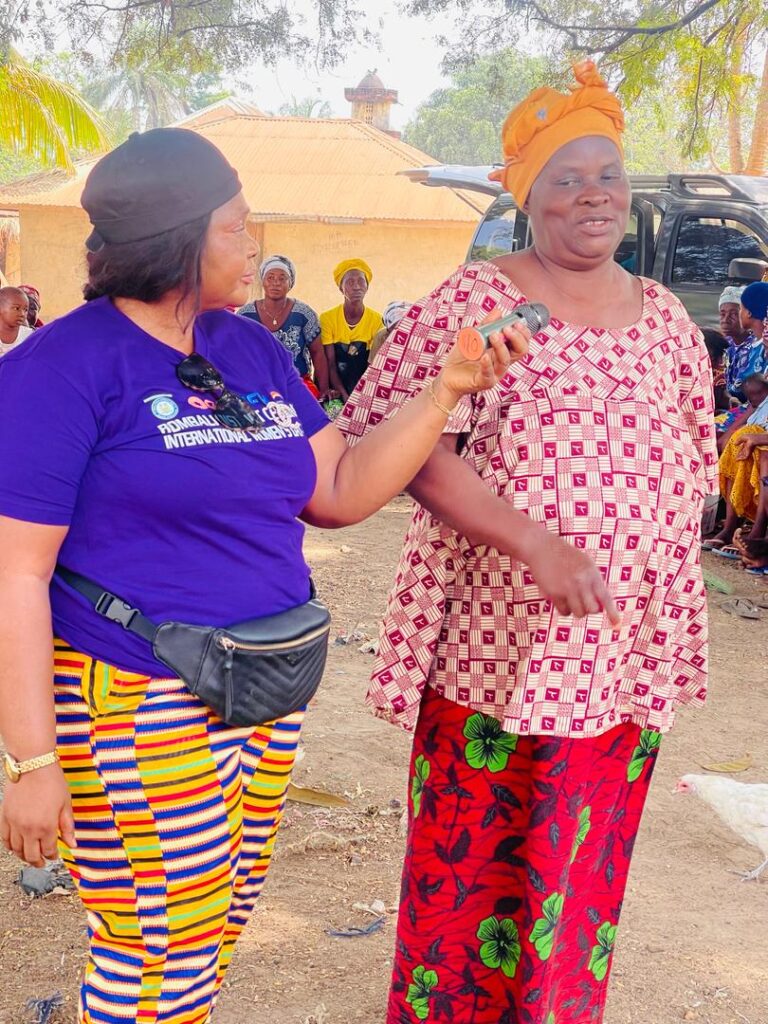
In Pate Bana over 100 women leaders, village elders, and youth came together for a heartfelt and courageous conversation on ending gender-based violence and addressing harmful practices such as FGM. This gathering reflected a growing willingness within communities to confront difficult truths while working together toward lasting, positive change.
To better understand local perspectives, HIRF conducted a survey among participants, many of them young women under the age of eighteen. Most respondents were aware of the harmful health effects of FGM. Yet, while 58% agreed that it is a harmful practice, 46% also described it as a positive tradition. This divergence underscores how deeply FGM is woven into cultural identity and highlights the need to engage with the social, cultural, and religious dimensions that shape these views.
Working Together for Change
Every Woman Sierra Leone has taken bold steps to engage directly with sowies. These conversations have opened pathways to explore how cultural identity and community values can be preserved without causing harm.
In a landmark moment, nearly 500 sowies gathered at a national conference on FGM and collectively pledged to seek alternatives that protect girls while honoring cultural traditions. This includes promoting safe, non-harmful rites of passage that maintain the dignity, respect, and communal belonging that the Bondo society represents. Such commitments demonstrate that cultural transformation is possible when solutions are developed from within the community, grounded in respect and shared values.
“At Every Woman, we’re not just changing the story – we’re telling the truth. I’ve survived domestic abuse, forced FGM, and rape—but I’m not here as a victim. I’m here as a voice, a leader, and a woman who believes that real change happens when survivors rise, speak, and lead the systems that once failed them,” stated Mariama Ama Navo Mbaimba, Director Every Woman Sierra Leone.
Moving Forward
HIRF remains committed to advancing the rights, health, and leadership of women and girls as a guiding principle across all its work. Looking ahead, we will continue to support community-led initiatives that challenge harmful practices, foster inclusive dialogue, and strengthen women’s roles in shaping the future. By working alongside traditional leaders, faith-based institutions, and grassroots organizations, HIRF aims to help communities reimagine traditions in ways that uphold dignity, protect health, and promote justice. Sierra Leone’s rich spiritual and communal heritage offers a powerful foundation for this transformation—and HIRF is dedicated to walking alongside communities on the path toward lasting, positive change.
